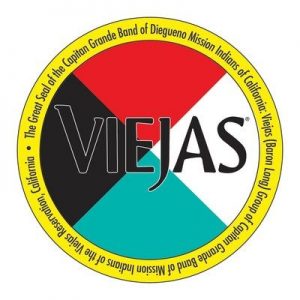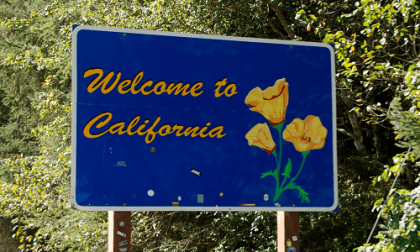California Tribes Lose in House-Banked Card Games Legal Battle
A lawsuit brought by three prominent casino-operating California tribal nations targeting certain house-banked games available in some of the state’s licensed cardrooms has been dismissed. On Tuesday, the US District Court for the Eastern District of California ruled in favor of the defendant State of California’s motion to dismiss the lawsuit filed at the start of 2019 by the Yocha Dehe Wintun Nation, the Viejas Band of Kumeyaay Indians, and the Sycuan Band of the Kumeyaay Nation.
The lawsuit filed by the three tribal nations and supported by numerous others of California’s casino-operated tribes asserted that the state had violated its gaming compacts with the tribes by allowing the state’s non-tribal cardrooms to offer certain card games that are effectively banked by the house, even though as originally conceptualized the “banker” position was to rotate from one player to the next.
 Modifications made in 2007 to the rules governing such games included allowing designated third-party prop players, or TPPs, to serve as the representative of the house and also serve as the dealer of the game in almost all instances. (The third-party prop player, given the ingrained house edge, then shares a contracted version of his profits with the house, though in an obfuscated matter.) The arrangement thus allows the cardroom to generate enough income in the long run to justify running the games.
Modifications made in 2007 to the rules governing such games included allowing designated third-party prop players, or TPPs, to serve as the representative of the house and also serve as the dealer of the game in almost all instances. (The third-party prop player, given the ingrained house edge, then shares a contracted version of his profits with the house, though in an obfuscated matter.) The arrangement thus allows the cardroom to generate enough income in the long run to justify running the games.
However, the tribes’ suit against the state asserted that all these games were and are illegal in their entirety and represent a violation of their gaming compacts that assured tribal exclusivity over certain forms of gambling in California. The District Court disagreed with several of the tribes’ assertions as they related to ongoing exclusivity over several gambling forms.
In a joint statement, the Viejas, Sycuan, and Yoche Dehe nations sought to minimize the ruling, calling it a “procedure finding”. The statement offered this:
The ruling was simply a procedural finding by the court that it lacked the power to require the State to enforce the law under the tribes’ compacts. The court reasoned the State had not promised to protect the tribes’ right to gaming exclusivity ― despite compact language acknowledging “the exclusive right” each tribe enjoyed under its Compact “to operate a gaming facility in an economic environment free of competition from the operation of slot machines and banked card games on non-Indian lands.” Nonetheless, the court found the compacts are not the vehicle under which the tribes can force the State to enforce the law, and protect their exclusive right to offer house-banked card games.
The three tribes also wrote that they “respectfully disagree with the court ruling and are considering an appeal to the Ninth Circuit Court of Appeals.”
The release of the statement triggered a countering statement from a lobbying entity representing many of California’s 87 licensed cardrooms, the California Gaming Association. The CGA and its president, Kyle Kirkland, directly disputed the tribes’ claims, writing, “The tribes have claimed that the Court ruled on procedural grounds and did not address exclusivity. In fact, the Court ruled that the tribal compacts did not provide exclusivity to these games. In its ruling, the Court made clear that the tribes’ interpretation of their compact rights was flawed.”
The CGA response also highlighted four “key statements” in the Ninth Circuit’s order to dismiss that it claimed proved otherwise regarding the tribal nations’ claims:
- Plaintiffs (Tribes) argue the most-recently entered Compacts guarantee the same right of exclusivity that was bargained for in the 1999 agreements. The Court disagrees. The Compacts, although recognizing the right of exclusivity provided by the California Constitution, do not include any express terms regarding Defendants’ obligation to preserve that right. In fact, the Compacts contemplate the abrogation of that right, providing the Tribes limited recourse in the event their rights of exclusivity lapse.
- Plaintiffs’ (Tribes) claim requires a showing that the Compacts created an obligation by the State to adopt Plaintiffs’ definition of “banking and percentage card games.” Nothing in the Compacts suggest such an obligation. In fact, Plaintiffs’ own complaint undermines the notion that the terms of the Compacts presupposed how Defendants would interpret and enforce state law.
- Plaintiffs’ (Tribes) claim requires a showing that the Compacts created an obligation by the State to adopt Plaintiffs’ (Tribes) definition of “banking and percentage card games.” Nothing in the Compacts suggest such an obligation.
- Devoid of any indication that the Compacts created these obligations, Plaintiffs’ (Tribes) allegations of bad faith fall short.
“We are pleased that the Court dismissed this lawsuit by these California tribes against the State of California over alleged violations of their tribal gaming compacts,” added Kirkland. “The Federal Court ruled that the compacts do not give the tribes exclusivity over gaming in California. This litigation was an attempt to eliminate competition from local cardrooms, threatening thousands of California families and dozens of communities statewide.
“We will continue to oppose specious tribal attacks on our industry, employees and communities. Tens of thousands of Californians count on cardroom living wage jobs to support their families, and dozens of communities rely on the tax revenue we generate to support vital public services. We will not stand by quietly while wealthy tribes try to misuse court resources to hurt our employees, their families and our communities.”




















COMMENTS